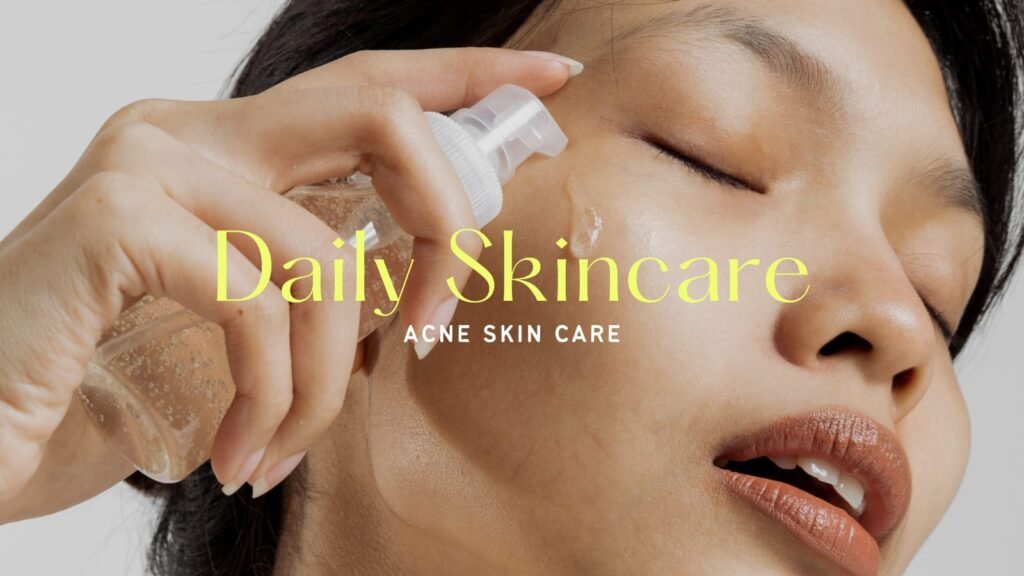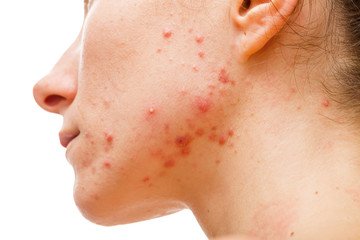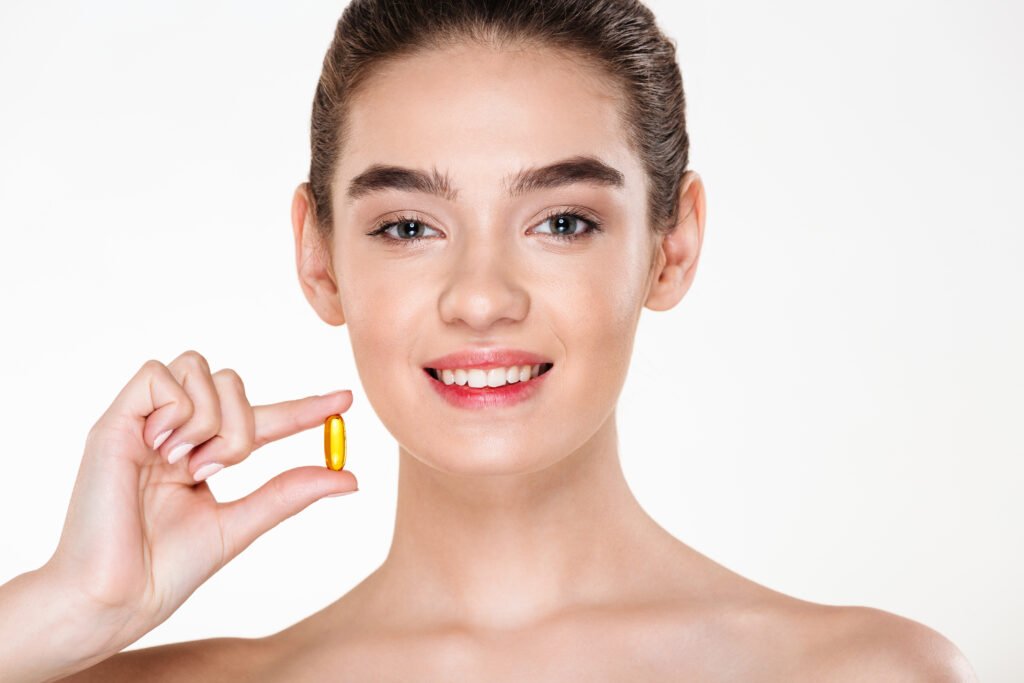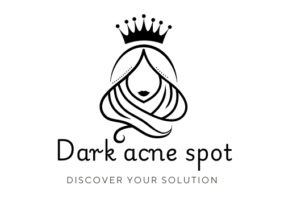
Introduction: The acne spots
Dealing with dark acne spots or Hyperepigmentation are often the next difficult thing that people with acne must deal with on their way to clear, glowing skin. These marks, which can last long after acne goes away, are annoying and can hurt your confidence and self-esteem. This detailed guide will take on dark acne spots head-on, explaining what they are, what causes them, and many ways to treat and avoid them so you can have clear skin.
Table of Contents
Understanding Dealing Dark Acne Spots
The skin’s colour changes after acne spots. This colour difference from other types of acne scars, like pitted or raised scars, comes from too much melanin, the pigment that gives skin its colour. Dark acne spots, also known as post-inflammatory hyper pigmentation (PIH), are flat spots that show up after inflammation or damage.
Causes of Dark Acne Spots
Different things can cause dark acne spots, but no specific cause exists. These are some common reasons:
As a defensive measure, the skin makes more melanin when acne sores get swollen, which causes dark spots.
- Popping or picking at acne: Messing with acne spots can hurt the face and leave scars and uneven colour.
- A lot of sun: UV rays make pigment, which makes dark spots look darker still.
- Changes in hormones: Such as changes in levels of hormones, can cause increased melanin production, making people more likely to get dark acne spots.

Preventive Measures for Dark Acne Spots
To stop dark acne spots from appearing, you need to treat the reasons and take charge of your skin care practices. The chances of getting these unsightly marks are much lower if you do the following :
- Don’t pick at or pop your pimples: It’s important to fight the urge to touch or move acne spots to keep your skin from getting damaged or dis coloured.
- Every day, use broad-spectrum sunscreen: By keeping your skin out of the sun’s harmful rays, you can keep spots from getting darker and stop new ones from appearing. Choose a sunscreen with at least Protection 30, and make sure you put it on repeatedly.
- Adopt a gentle skin care treatment: Use harmless, non-acnegenic products that won’t clog cells or cause acne. Vitamin C, a form of AHAs (alpha, a mixture of acids), are some ingredients that can help with colour and cell turnover.
- Deal with your stress: Stress can make acne and dark spots worse. Things that help you relax, like working out, meditating, or having hobbies, can help your skin stay clearer.
- See a dermatologist. Seeing a dermatologist can make a big difference in your treatment plan if you have dark spots and acne that won’t go away. To successfully treat acne and colour change, they may suggest cosmetic treatments, mouth medicines, or procedures done by an expert.
Differences from Other Types of Acne Scars
It is very important to separate condition scars from other acne scars. Although PIH is just a discolouration, real acne scars can change how your face feels. Scars from acne that look like ice picks, boxcars, or rolls are widespread. Different treatments may be needed for these scars compared to those used to reduce discoloration
Treatment Options for dark acne spots
The market offers various treatment options to help fade and prevent dark acne spots. Some of these include:
Retinoids: These vitamin A products are known to speed up cell turnover, which means they get rid of the top layer of skin and make room for new, even-toned skin to grow in its place.
Additionally: vitamin C is an antioxidant that can help make skin brighter and stop melanin production.
Hydroquinone:a skin-lightening drug that can be bought over the counter or with a prescription, stops melanin synthesis.
Kojic Acid: This is a natural chemical that comes from different kinds of mushrooms. It is sometimes used instead of hydroquinone because it is less annoying.
Azelaic acid : can help treat post-inflammatory discolouration because it reduces inflammation .

Home Remedies and Natural Treatments dealing with dark acne spots
While the effectiveness of home remedies can vary, some natural treatments have shown promise in managing dark acne spots:
Aloe Vera: You can put aloe vera on your skin to reduce pain and speed up the mending process. The calming benefits of aloe vera are well known.
- Licorice Root Extract: This is said to help fade dark spots because it is a natural way to lighten the skin and reduce inflammation.
- Niacinamide (Vitamin B3): This vitamin is becoming more famous because it can reduce inflammation and lighten dark spots.
- Curcumin, the main ingredient in turmeric:is thought to stop the production of melanin, which is another natural anti-inflammatory.

Prevention Techniques
Preventing dark acne spots from forming involves successfully treating existing acne lesions and avoiding potential triggers.
Sun Protection
Too much time in the sun can make pulmonary artery disease look worse. Daily use of a broad-spectrum sunscreen with an SPF of 30 or higher will protect your skin from UVA and UVB rays that can be dangerous.
Proper Acne Management
Treating acne quickly and well can avoid many cases of PIH. This includes using over-the-counter medicines and, if needed, prescription drugs to keep acne under control.
Avoiding Picking or Squeezing Acne
Using force or popping acne sores can worsen the redness and raise the risk of getting dark spots. It’s important to be patient and let spots heal on their own.
Lifestyle Tips for Skin Health
Taking care of your skin’s health from the inside out can complement external treatments and prevent the recurrence of dark acne spots.
Diet and Hydration
Your face can heal and look younger if you eat a lot of fruits, veggies, whole grains, and lean meats. Staying refreshed is also very important for keeping your face healthy.
Stress Management
Stress can make acne worse and cause post-inflammatory hyperpigmentation to get worse. Meditation, yoga, or regular exercise can help your face if you do them to relieve stress.
Consistent Skincare Routine
Following a daily skin care practice that includes cleaning, toning, and moisturising can help your skin stay healthy and, over time, make dark spots less noticeable.

FAQs
How long do dark acne spots take to clear?
This can be very different for each person and depends on how bad the spots are. Some might go away in a few months, but darker spots might not go away for a year or more.
Can dark acne spots be prevented?
While it may not be possible to completely avoid getting dark spots, treating acne early and keeping the skin from getting hurt can greatly lower the chance of getting them.
Are dark acne spots permanent?
A lot of the time, post-inflammatory hyperpigmentation is temporary and will go away with time and the right care. But discoloration that is deeper and covers more skin may need more severe treatment and take longer to go away.
Conclusion
Getting rid of dark acne spots is hard for many reasons and sometimes needs professional help. You need to be patient and use a variety of skin care methods. Post-inflammatory hyperpigmentation can be greatly reduced and you can get the clear, even skin tone you deserve by learning about the root reasons, taking preventative steps, living a healthy life, and making smart decisions about treatment.
Don’t be afraid to talk to a doctor about your dark acne spots.
They can make a treatment plan that works for your skin type and situation. The best ways to get and keep a clear face are to get regular professional care and follow a thorough home skincare routine. Today is the day to start taking care of your face and feeling better about your self-esteem.
.
